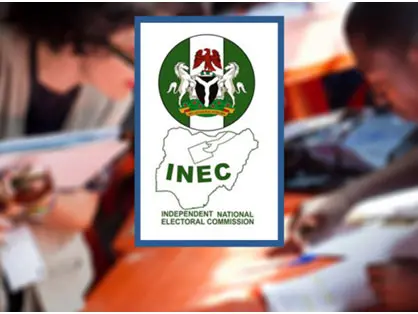INEC: Time to earn trust
In less than three weeks from now, the Independent National Electoral Commission (INEC) should be conducting three off-season governorship elections in Kogi, Bayelsa and Imo states. The conduct of these off-cycle governorship elections, scheduled for Saturday, November 11, 2023, are crucial. They will be the cynosure of stakeholders because they are coming after the conduct […]

In less than three weeks from now, the Independent National Electoral Commission (INEC) should be conducting three off-season governorship elections in Kogi, Bayelsa and Imo states.
The conduct of these off-cycle governorship elections, scheduled for Saturday, November 11, 2023, are crucial. They will be the cynosure of stakeholders because they are coming after the conduct of the 2023 general elections. Even though the 2023 general elections scored a number of positives such as the demystification of some persons who used to hold sway over large swathes of the country and checkmated the propensity of governors who had served two terms to retire into the Senate, the elections came short in several respects.
Marred by violence, voter suppression, logistics challenges, etc, the commission did not resoundingly abide by its guidelines in the presidential election. Contrary to the Regulations and Guidelines for the Conduct of Elections, 2022, it did not transmit Polling Unit (PU) results to the INEC Election Results Viewing Portal (IReV) real-time in the presidential election.
Paragraph 38 of the said Regulations states: ”On completion of all the Polling Unit voting and results procedures, the Presiding Officer shall:
(i) Electronically transmit or transfer the result of the Polling Unit, direct to the collation system as prescribed by the commission.
(ii) Use BVAS to upload a scanned copy of the EC8A to the INEC Result Viewing Portal (IReV), as prescribed by the commission”.
These failings, particularly the latter, battered the commission’s image. Even those who staunchly believed in INEC, vouched for it and helped market its innovations, such as the IReV and the Bimodal Voter Accreditation System(BVAS), and which they thought would further game-change the elections, were bewildered by this breach.
In addition, to the commission’s inability to abide by its own guidelines, the commission lost the trust of many Nigerians – critical commodities which it boasted of and in sufficient quantities in the lead up to the conduct of the 2023 general elections. This lack of interest, which was widely reported, is reflected across the three states in which the elections will be held.
Worsening matters for the commission are the bellicose rhetoric that informed campaigns, the heightened insecurity in the three states and the discordant tunes being sang by its officials. Violence has reared its ugly head in the three states ahead of the elections. This is not surprising given the unseemly electoral pedigrees of the three states, the incivility of their gladiators and the undue value we attach to off-cycle governorship elections.
The commission has had to call attention to the prospect of violence marring the conduct of these elections.
Until the INEC Chairman, Professor Mahmood Yakubu, cleared the air recently, the impression was given earlier by one of its senior officials was that PU results, in the off-cycle elections, were not going to be uploaded, real-time, on the IReV.
As the elections await, we expect to see an uptick in voter education, frequent and sustained engagements with critical stakeholders such as the media, civil society and security agencies.
The best-planned elections can go awry or out of kilter if the environment and the men and materials involved are not secured. Already, ad hoc staff are not forthcoming in their numbers in one of the states in which the governorship election is to be conducted for fear of insecurity.
What is key, however, is for INEC to conduct some of the best elections in our annals in these three states. It will be uphill, but it is a feat INEC has to achieve in order to bring itself into reckoning and to begin the urgent tasks of earning the trust of Nigerians and burnishing its image.
Election pundits and students alike are now unanimous: It would take the conduct of superlative elections in at least one election cycle for INEC to recover its pre-2023 general elections salubrious standing in the eyes of stakeholders. The November 11 off-cycle governorship elections thus, provide an auspicious opportunity. The commission should enthusiastically grab it with two hands.
In addition to its latching onto these off-season governorship elections to embark on its journey of redemption, the commission will do well to be proactive. It should also be guided and underpinned by its Standard Operating Procedure (SOP): It should be upfront with information at all times. And it should give periodic updates/statements as the elections proceed apace on election day. That way, it will assume its veritable role as the driver of the elections, take full control and charge of the narrative concerning the conduct of the elections and make it difficult for our increasingly creative and adventurous purveyors of fake news to have a field day.
Conducting exquisite elections on November 11 is doable. It is a task that must be done if we are to invest confidence in our democracy. The commission should focus its energies and resources on this ennobling enterprise. It should then sustain the momentum of this can-do spirit in the conduct of the Edo and Ondo off-season governorship elections scheduled to be held in 2024.
Godspeed!
Nick Dazang is a former Director at the Independent National Electoral Commission (INEC)
